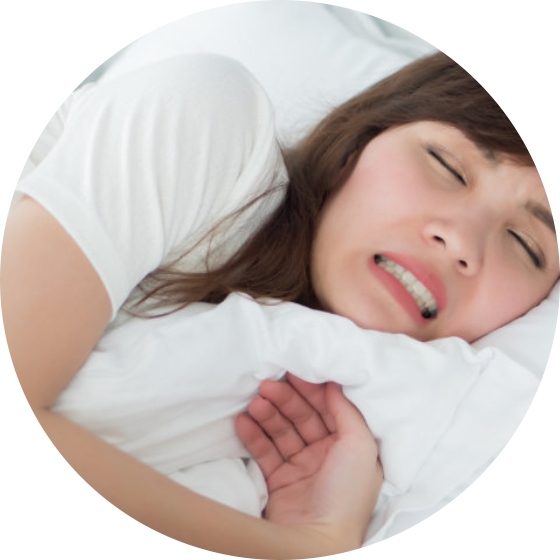Bruxism
Last updated: December 2021
Home > Information & Support > Adults > Sleep Disorders >Bruxism is condition where you grind or clench your teeth during sleep.
Affecting around one in 12 people, it is often triggered by stress or anxiety but is also common in people with sleep paralysis, sleep apnoea, smokers and heavy drinkers.
It occurs mainly in light sleep and while occasional teeth grinding does not usually cause harm, it if happens frequently it can damage teeth.
Symptoms of Bruxism
- The noise disrupts yours and your bed partner’s sleep
- It can cause headaches, sore jaw and facial pain
- Worn down or broken teeth
Treatment of Bruxism
There is no specific for cure for bruxism, but you can manage the disorder by employing stress management techniques and making lifestyle changes ie. cutting back on alcohol, caffeine and smoking and taking more exercise.

Some people find controlled abdominal breathing can help and improving sleep hygiene such as creating a calming bedtime routine, making time to relax before bed and keeping regular sleep hours.
Talk to your dentist if you think you are experiencing bruxism. In severe cases a dentist may recommend the use of a splint or mouth guard to help protect the teeth.
